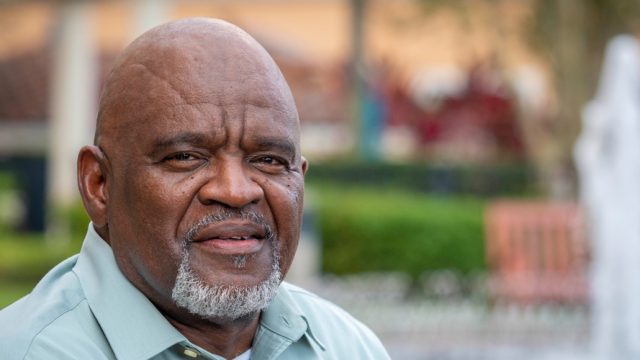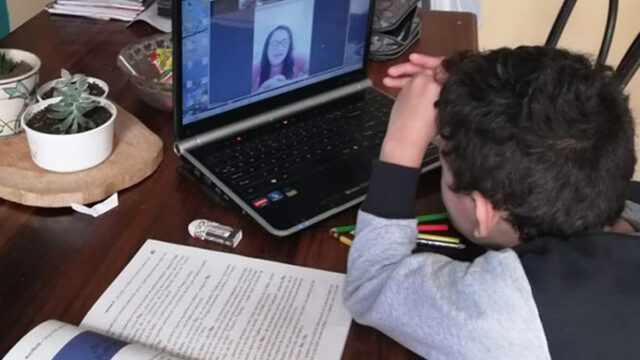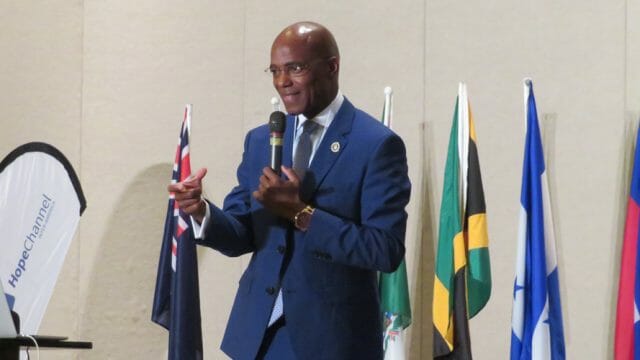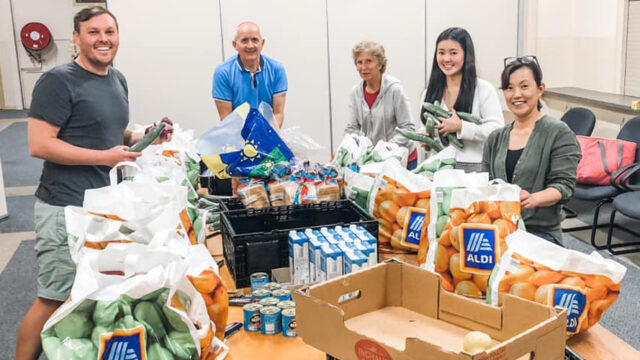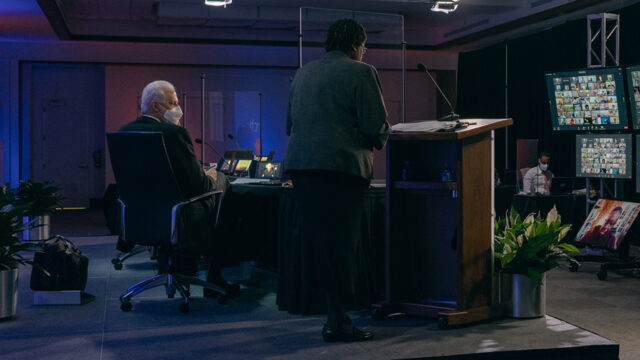World Bank International Development Association [IDA] director talks with AW about service, faith, and life.
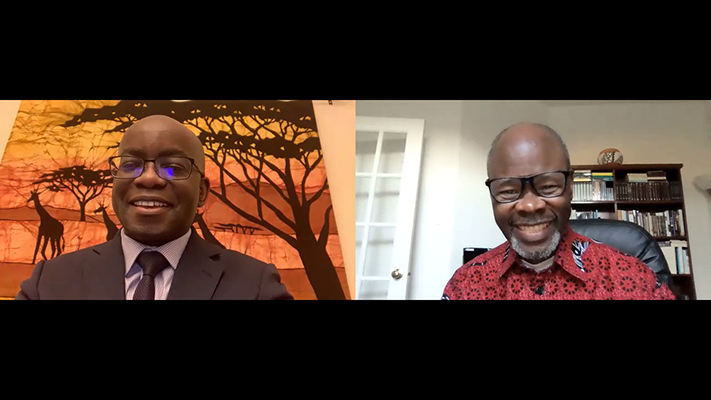
Samuel Munzele Maimbo* is director of the International Development Association (IDA) Resource Mobilization and International Bank for Reconstruction and Development (IBRD) Corporate Finance Department at the World Bank. In this interview he shares with Adventist World the story of his life and work and faith.—Editors.
AW Tell us a little about yourself: your country of birth, your family . . .
SMM My name is Samuel Munzele Maimbo, and I was born in Lusaka, Zambia, in 1972 to Khama and Vesta Maimbo, both civil servants. They raised five children in the Adventist faith. I am married to Mwaka Chimuka, also from Zambia, and have been blessed with two children, Matipa and Mudenda.
AW What do you do at the World Bank, and how did you get there?
SMM I’m responsible for implementing IDA’s hybrid financial model and the policy analysis of IBRD income and corporate finance. Prior to this, I’ve held senior advisory and supervisory positions in a diverse range of operations and contexts, including strategy and operations, and long-term finance and risk management; and including countries and regions such as the South Asia Region, Africa Region, and Europe and Central Asia regions. My work experience has embraced such varied areas as agriculture finance and insurance, capital market development, disaster risk finance, housing finance, infrastructure finance, pensions and insurance, and climate finance. Before joining the World Bank, I served as bank inspector at the Bank of Zambia and auditor at PricewaterhouseCoopers (PWC).
AW How did you become part of the Seventh-day Adventist Church?
SMM I was born into the Adventist faith. My grandfather, Daniel Mweemba Maimbo, and my grandmother, Miriam Maimbo, were early converts in the 1920s in Southern Province in Zambia. My parents brought me up in the faith in the Libala Seventh-day Adventist church in Lusaka, Zambia. I was baptized while in boarding school at Canisius Secondary School. I still remember the 10-kilometer walk from Canisius to Rusangu Secondary School. It was the start of a long and continuing journey of faith.
AW What made you choose a career in finance?
SMM Finance came naturally to me. Accounting helped me understand how the world worked. It explained why some companies, and by extension some countries, prospered and others did not. Even as individuals—we are all born with a balance sheet of assets and liabilities. The study of finance helps explain how to balance the two. It can be a force for good if used well, and it can wreak havoc for those who do not use it well. After working for a private bank, an audit firm, and the central bank, it was clear I would spend the rest of my professional life in finance.
AW How have faith and profession affected each other?
SMM At times, faith reinforces one’s profession. The Christian concepts of stewardship, for example, are very consistent with the basic concepts of finance and accounting. That is why it does not surprise me that basic double-entry accounting systems have their origins in Italian Christian traditions. At other times, however, faith comes in direct conflict with one’s profession. Corporate finance principles of profit maximization can sometimes expose high levels of greed in contrast to our Christian faith.
AW What has the clash or intersection produced? Give us an episode or two from that area that for you constitute a significant memory, or perhaps a momentous life experience.
SMM In my development work with the World Bank, I have been privileged to visit countries around the world that do not enjoy the same religious freedoms that we often take for granted. Nothing has given me greater pleasure than to find myself in a country on the Sabbath and find an Adventist community that is worshipping in someone’s house, in a school, or in the basement of an apartment block. Joining them for a simple meal has always felt like being at home away from home.
AW So how have those experiences influenced the rest of your career?
SMM I am not an expert on Adventist doctrine nor am I some hero of faith. However, some basic tenets have greatly helped me in my career. The practice of Sabbath rest has made me more efficient during the week toward the Sabbath and more energized after a restful Sabbath; the health messages of the faith have kept me in better health than would otherwise have been likely; interrogative Bible studies at church led by brothers and sisters have made me a better academic researcher; and the many examples in the Bible of common people speaking truth to power have given me the confidence to speak up more often than I might have.
AW As a general rule, how would a global pandemic be expected to impact a worldwide church?
SMM The pandemic is affecting everyone. It has changed how we interact physically and online. The global Adventist Church needs to find new ways for maintaining the Christian bonds that keep us on the long journey of faith. It is not an easy one. It is one that we stray from often. Maintaining our links to others walking this journey helps encourage those of us who experience periods of doubt and weakness. I feel a particular concern for brothers and sisters who live alone and endure long periods of isolation.
AW What should earlier economic downturns—recessions [2008-2009], depressions [1929-30s]—have taught us as Christians? Or more particularly, as Seventh-day Adventists?
SMM The COVID-19 crisis has thrown the global economy into the worst recession since World War II, with deep and widespread implications for the poorest countries in the world. On top of the health emergency as the virus continues to take hold, latest projections from the World Bank’s Global Economic Prospects indicate that IDA countries will suffer the sharpest decline in growth since the 1960s. Deep recessions triggered by the pandemic are likely to leave lasting scars through multiple channels, including lower investment, a decline in productivity, shrinking trade and supply linkages, job losses at home and for migrants working abroad, a sharp fall in remittances, and erosion of human and natural capital.
Adventists are part of the global community and are being impacted negatively as well. Many are being pushed back into extreme poverty. I am especially concerned for those who live in fragile and conflict-affected situations. Public health measures like travel bans and quarantines mean that many workers cannot get to work. Businesses are closed or remain open only limited hours; even when operating, lower consumer demand has affected earnings. Investments and new hiring are deterred even after the worst of the health crisis passes. Permanent business closures, rising unemployment, and loss of livelihoods are big concerns.
AW What do you see as next—for the world, for the church, for your family, for you?
SMM Crises tend to remind us of the importance of other people in our lives. The world, the church, our family, and each one of us have been affected by the COVID-19 crisis. As we start to think about recovery, we all have a role to play. We have to hold onto our individual and collective faith in contributing to social protection programs for the poor among us; supporting those who have lost their jobs; and working with government and nongovernment organizations, especially faith-based institutions, to invest in primary health care, reopen schools safely, leaving no one behind; and work toward a more inclusive and sustainable economic development model.
AW Any last word of counsel for your church family or others who may be tuned into this conversation?
SMM My favorite African proverb says, “If you want to go fast, go alone; but if you want to go far, go together.” It applies to both the practice of our faith and the practice of our profession. In each, it is important to be part of a family. Jointly, our faith and professions are intertwined in ways that make it essential that we work closely with others so that they are a positive reinforcement in our lives. My advice to young men and women embarking on their professional career: don’t sacrifice your faith in the interest of accelerated careers; faith will help you endure the challenges of a complex world that will come your way and give you a longer and more rewarding career.
AW Thank you, Sam, for the inspiration of your life and testimony.
* BSc., Accounting, Copperbelt University, Zambia; MBA, Finance, University of Nottingham; Ph.D., Public Administration (Banking), University of Manchester; Fellow Chartered Certified Accountant (FCCA, UK).


